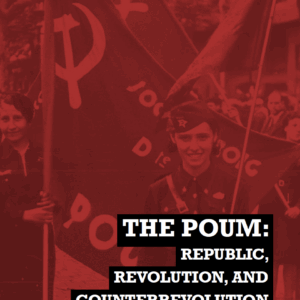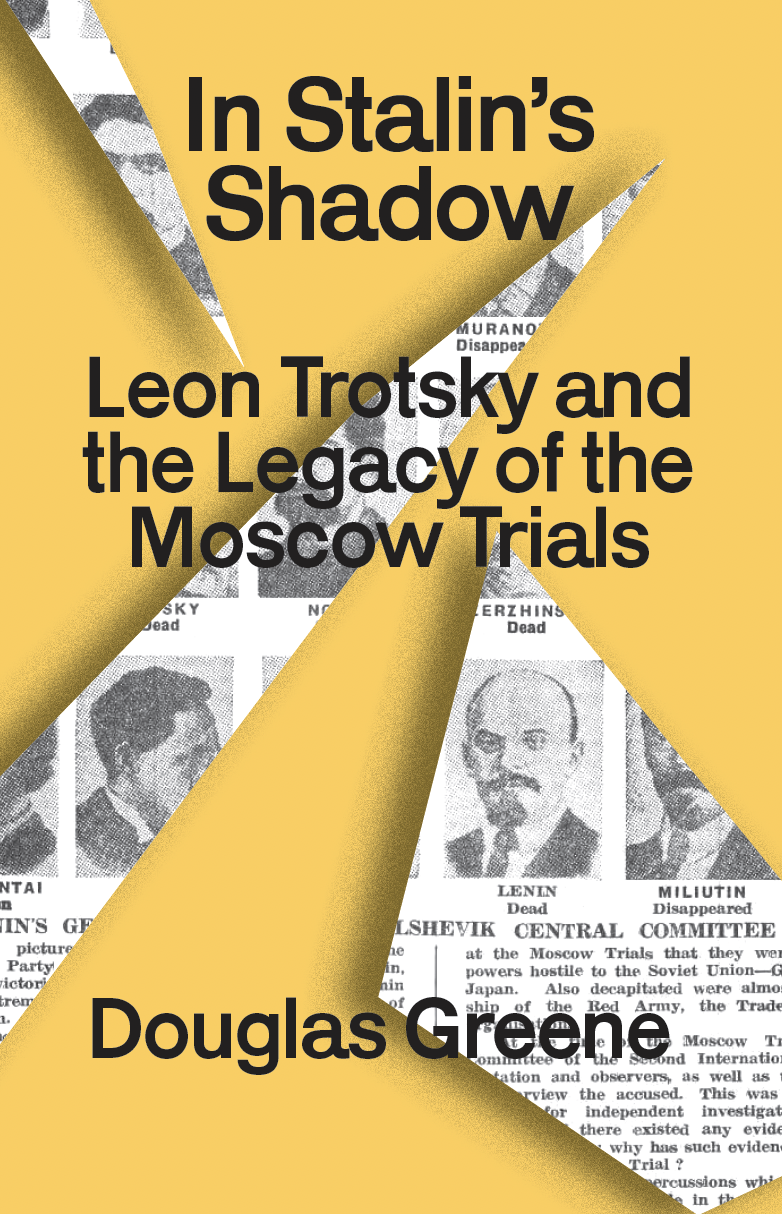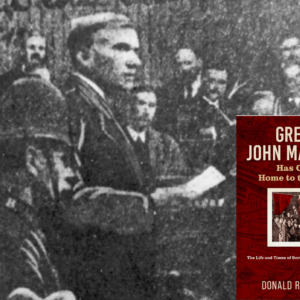J is a CWU member and one of the 400 union activists suspended or dismissed by Royal Mail during the strike. He is helping organise the rejection of the latest offer from the employers.
A*CR: The dispute started last year, and postal workers have taken several days off. Can you remind our readers what the dispute was about?
J: Last year, Royal Mail refused pay rises in line with inflation, which is in reality a pay cut. We were offered only 2%.
We had a second ballot because Simon Thompson and the Royal Mail bosses then revealed their real plans based on slashing our terms and conditions, massive job cuts (including compulsory redundancies), and hiring a two-tier self-employed workforce. Their aim was to break the CWU once and for all and end Royal Mail as a service, turning it into just another delivery company.
“Their aim was to break the CWU once and for all and end Royal Mail as a service, turning it into just another delivery company.”
A*CR: Other unions have been taking strike action at the same time over similar issues, in particular pay increases to compensate for the cost of living. How has this affected the mood of CWU members and the strategy of the union?
J: Obviously, other unions fighting at the same time have been massively important in creating a sense of unity amongst workers. Unfortunately, despite occasional noises from the union leaders about united action and a few joint days of action, there have been no real attempts to coordinate action beyond this. The CWU, despite setting up “Enough is Enough” as a cost of living and solidarity movement, had a joint strike day on October 1st last year that was immediately dropped. The trade union bureaucracy fears that if united action takes place, they could lose control of the disputes.
A*CR: Over 400 CWU activists have been suspended during the strike. This sounds like the management is worried about the strength of the union at the local level. Can you give us a few examples and tell us what the union is doing to defend these members and get them reinstated?
J: Most of the cases against the reps are incredibly weak, just stitch-ups; they are a transparent attempt to attack the union in the workplace by getting reps and striking members out.
The union leadership’s response to suspensions and sackings of reps and activists has been disappointingly weak. They have refused to escalate action in response or add the reinstatement of victimised trade unionists to the union’s demands. They have even prevented local offices from balloting for strike action against victimisation.
A*CR: The latest offer from the employers includes a 10% pay increase over three years. This is, in effect, a pay cut. What else is on offer, and what do union members think about it?
J: The proposed deal has pushed Royal Mail back on some issues, like compulsory redundancies, but concedes almost all of Royal Mail’s demands. It would be a huge downgrade in pay, terms, and conditions, lead to a massive hike in workload, and fail to guarantee job security. It also undermines the ability of the union to fight back in the future.
The deal accepts the pathetic 2% for last year, which workers have already been paid anyway, gives 6% this year and another 2% next year, and a one-off £500 lump sum. Altogether, given still spiralling prices, that is a pay cut of more than 10% in real terms. Promises of 20% of any profits and schemes to “incentivise” workers with payments for extra parcels delivered rely on hiking our workload.
It would also lead to longer hours, particularly over the Christmas period, and extend outdoor physical work.
While the Royal Mail bosses paid themselves over half a billion pounds in dividends, bonuses, and shares last year before then claiming they were losing £1 million a day, the deal demands that workers pay to turn “the fortunes of the company around”.
“While the Royal Mail bosses paid themselves over half a billion pounds in dividends, bonuses, and shares last year before then claiming they were losing £1 million a day, the deal demands that workers pay to turn ‘the fortunes of the company around’.”
A*CR: Royal Mail bosses have threatened the liquidation of the company if the deal is not accepted. This sounds like a threat to scare CWU members into accepting a rotten deal. Is that one reason why the union executive is recommending acceptance on a ballot?
J: In part. The union bureaucracy will always act to secure its own interests. Of course, both the bureaucracy and rank-and-file workers have an interest in the survival of the union, but the bureaucracy will always be more willing to accept a compromise that, while hugely damaging for members, at least ensures the continuance of the union in some form, particularly its link to the shopfloor through workplace reps. The CWU leadership seems to have made its own peace with the idea that the business and the workforce will be transformed with worse pay and conditions for workers, but they fear that an all-out war between the union and the bosses could end up with Royal Mail declaring bankruptcy and the Tories taking it over and imposing big cuts. We should fight that blackmail, not give into it.
A*CR: The ballot will be open from May 17 to June 7. You, along with other CWU members, are opposing the deal. How are you organising to win the vote?
J: A group of representatives and activists have begun a campaign called Postal Workers Say Vote No.
It is aimed at building a grassroots network of activists in the CWU to campaign against the deal. There are different representatives with different political backgrounds, or none in most cases. I believe that it has the potential to become a rank-and-file movement in the union if it succeeds in putting down deep enough roots.
We plan to campaign by approaching like-minded trade unionists in the CWU and workers directly in depots and delivery offices, as well as spreading as much information about the true nature of the deal as possible and countering inaccuracies spread by the union leadership and lies peddled by Royal Mail. Reps and workers can contact their branches to demand a members’ meeting decide on any recommendation for or against the deal, so that we can build as big a movement as possible.
A*CR: What do you think could be a strategy for pushing back the Royal Mail’s attacks and winning your dispute?
J: If the deal is rejected, we will need a renewed approach to the strike. We need to shift to escalating, up to all-out strike action if needed to win, and this action needs to be made possible by building workplace organisation, aiming for strike committees in every office and depot, and rank and file committees able to push for the maximum action, with or without the trade union leaders. The contained nature of the strikes up to now and the suspension of action when a deal is dangled by Royal Mail have sapped momentum and workers’ militancy. In order to win, we need to ramp up activity and keep the pressure on. This is unlikely to be done by the union leaders themselves, which is why members need to take control.
A*CR: Royal Mail and Parcel Force have been separate private companies since 2013. It sounds like management wants to transform them completely into companies like the other private delivery companies. What should be the future of the post and parcel service? And what is Labour saying about this dispute and the future?
J: The obvious demand, which should have been raised from the beginning and that the CWU leadership has fought hard to exclude, is full renationalisation of Royal Mail. The reason that the leadership has not raised this demand is because they accepted privatisation long ago and they want to cut a deal with management, not add an extra area of struggle. They are waiting for a Labour government to boost the US, despite Starmer fighting tooth and nail to distance themselves from the radicalism of the Corbyn years.
I believe, as a socialist, that simply bringing Royal Mail back into public ownership is not enough for us. Postal workers are fully capable of organising the postal service without parasites like Simon Thompson, or Old Etonian civil servants, for that matter, to tell us what to do. Nationalisation under workers’ and consumers’ control, with a network of offices and depots run democratically by workers themselves for the benefit of all workers, should be the ultimate goal.
“Nationalisation under workers’ and consumers’ control, with a network of offices and depots run democratically by workers themselves for the benefit of all workers, should be the ultimate goal.”
Art (54) Book Review (127) Books (114) Capitalism (68) China (81) Climate Emergency (99) Conservative Government (90) Conservative Party (45) COVID-19 (45) EcoSocialism (58) Elections (83) Europe (46) Fascism (61) Film (49) Film Review (68) France (72) Gaza (62) Imperialism (100) Israel (129) Italy (46) Keir Starmer (56) Labour Party (114) Long Read (42) Marxism (50) Marxist Theory (48) Palestine (178) pandemic (78) Protest (154) Russia (341) Solidarity (146) Statement (49) Trade Unionism (142) Ukraine (349) United States of America (134) War (368)
Latest articles
- THE POUM: Republic, Revolution and CounterrevolutionBy Andy Durgan “The POUM: Republic, Revolution, and Counterrevolution” provides an updated and original introduction to the history of the party. It examines the POUM’s origins, its relations with the workers’ and peasants’ movements of the time, its political ideas, and its role in the revolution that erupted in July 1936. This is a story… Read more: THE POUM: Republic, Revolution and Counterrevolution
- IN STALIN’S SHADOWLeon Trotsky and the Legacy of the Moscow Trials. by Douglas Greene. “In Stalin’s Shadow” examines how Trotsky has been portrayed as a villainous figure in conspiracy theories ranging from Russian antisemitic television series to neo-Stalinist historical narratives. Greene analyzes the Moscow Trials of the 1930s and unmasks modern defenders of Stalin like Domenico Losurdo… Read more: IN STALIN’S SHADOW
- Voices against Putin’s warProtesters’ defiant speeches in Russian courts. Foreword by John McDonnell MP and edited by Simon Pirani. This book comprises ten speeches in court by people who opposed Russia’s war of aggression in Ukraine, and were arrested, tried and handed long jail sentences for doing so. There are also letters and interviews in which they made… Read more: Voices against Putin’s war
- Great John Maclean Has Come Home to the ClydeIan Gault reviews this new biography of the Scottish socialist pioneer, John Maclean
- Israel – Boycott, Divest and Sanctions campaign in HackneyHackney Palestine Solidarity campaigns for council divestment and an end to twinning with Haifa






